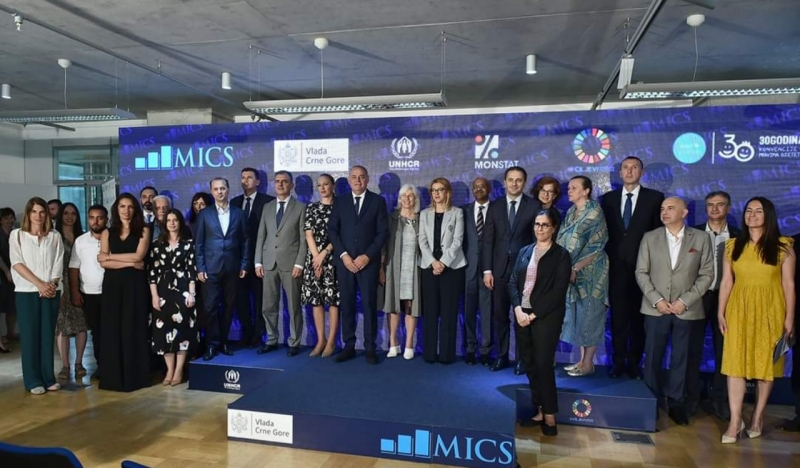After the census, this is the biggest survey which, with the UNICEF support, is being carried out worldwide every five years, aimed at collecting statistically reliable and internationally comparable data on children and families. The survey collects information on households, women and men ages 15 to 49, and children younger than 5 and children 5-18.
This survey provides data for Montenegro on 199 indicators relating to the lives of children and families in our country and 20 indicators of SDGs for general and Roma population in the field of health, education, social care, environmental protection, living conditions and welfare. The obtained data are used to assess Montenegro’s progress in achieving the SDGs, implementing the UN conventions, as well as the country’s progress in the EU accession and meeting of other internationally accepted obligations.
In the introductory part, there was a display of animations on the key findings of the 2018 Multiple Indicator Cluster Survey for the general population and Roma neighbourhoods in Montenegro.
The participants were addressed by Head of the UNICEF Representative Office to Montenegro Mr Osama Makkawi Khogali, Deputy Prime Minister of Montenegro for economic policy and financial system Mr Milutin Simović, and director of the Statistical Office of Montenegro Ms Gordana Radojević.












